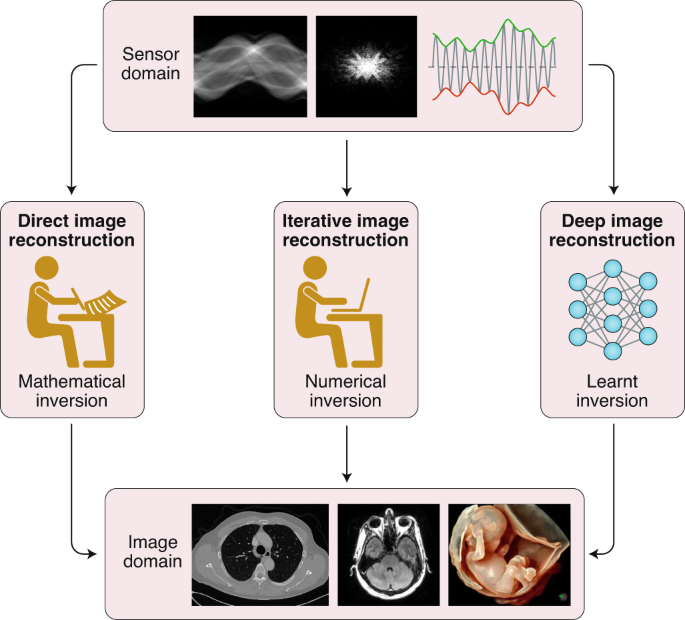Image Reconstruction: From Sparsity to Data-Adaptive Methods and Machine Learning
Objective
The objective of this project is to focus on the two most recent trends in medical image reconstruction that is methods based on scarcity or low-rank models and data-driven methods based on machine learning techniques.
Abstract
Machine learning is the study of computer algorithms that improve automatically through experience. It is seen as a subset of artificial intelligence. The field of medical image reconstruction has seen roughly four types of methods. The first type tended to be analytical methods, such as filtered back projection (FBP) for X-ray computed tomography (CT) and the inverse Fourier transform for magnetic resonance imaging (MRI), based on simple mathematical models for the imaging systems.
Keywords: Compressed Sensing (CS); Dictionary Learning (DL); Image Reconstruction; Magnetic Resonance Imaging (MRI); Non-convex Optimization; Positron Emission Tomography (PET); Single-Photon Emission Computed Tomography (SPECT); Sparse And Low-Rank Models; Transform Learning; X-Ray Computed Tomography (CT).
NOTE: Without the concern of our team, please don't submit to the college. This Abstract varies based on student requirements.
Block Diagram

Specifications
HARDWARE SPECIFICATIONS:
- Processor: I3/Intel
- Processor RAM: 4GB (min)
- Hard Disk: 128 GB
- Key Board: Standard Windows Keyboard
- Mouse: Two or Three Button Mouse
- Monitor: Any
SOFTWARE SPECIFICATIONS:
- Operating System: Windows 7+
- Server-side Script: Python 3.6+
- IDE: PyCharm
- Libraries Used: Pandas, Numpy, Matplotlib,TensorFlow.
Learning Outcomes
- Compressed sensing (CS).
- Dictionary learning (DL)
- Magnetic Resonance Imaging (MRI)
- Multilayer Models.
- Nonconvex Optimization.
- Positron Emission Tomography (PET)
- Single-Photon Emission Computed Tomography (SPECT)
- Sparse And Low-Rank Models; Structured Models.
- Transform Learning.
- X-ray computed tomography (CT)..
- Importance of PyCharm IDE.
- Process of debugging a code.
- The problem with imbalanced dataset.
- Benefits of SMOTE technique.
- Input and Output modules
- How test the project based on user inputs and observe the output
- Project Development Skills:
- Problem analyzing skills.
- Problem solving skills.
- Creativity and imaginary skills.
- Programming skills.
- Deployment.
- Testing skills.
- Debugging skills.
- Project presentation skills.
- Thesis writing skills.





 Paper Publishing
Paper Publishing
